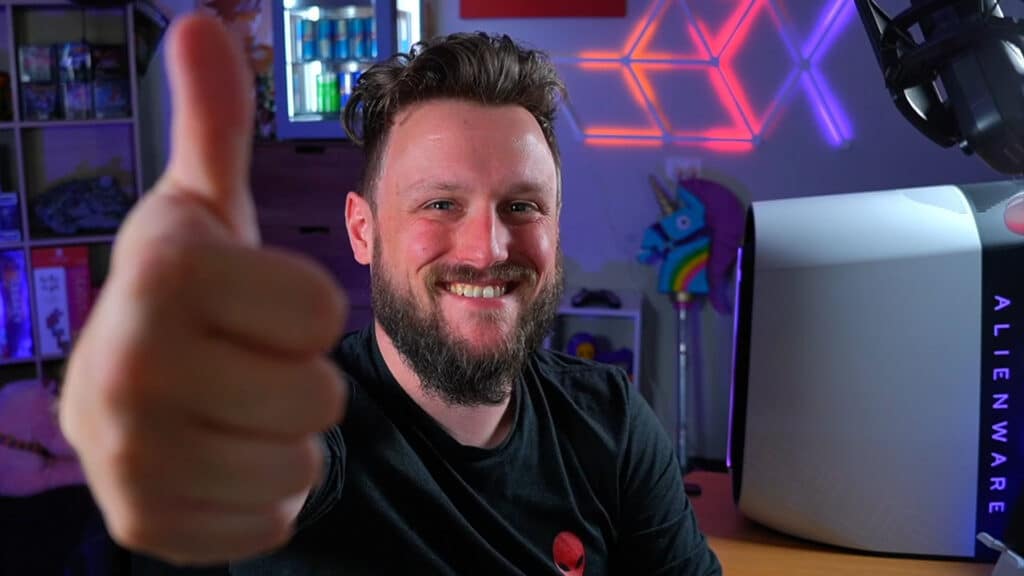I spoke to two health professionals to get their professional opinions on Mental Illness and Video Games, if it helps or if it can make things worse. Below are our conversations. It’s incredibly interesting what they have to say!
Psychologist Mary Girgis.
Do you know much about video games?
I know about the basics of games example: what’s popular right now, different types of games. I don’t personally play any games.
What is your professional opinion on the connection between mental illness and video games?
my opinion is that currently the evidence is limited and inconclusive. However, strides are being made to incorporate games into therapy, for example, treating phobias with VR.
Also, if gaming improves your mood, and doesn’t interfere with other areas of your life, then it’s best to continue what you personally find effective. It’s all about having a balanced life style, too much of anything isn’t good for you, which is something that the research has shown.
Do you have any evidence of it helping/not helping?
I’ve done a brief review of the literature and it seems that the evidence is inclusive, with the evidence perhaps leaning towards video games having no effect in general on mental health. Although, the research doesn’t indicate if the players are interacting with others, I’m not sure but I would guess that games that allow you to communicate with others, especially if the person isolated, would improve mood based disorders like depression or anxiety.
However, I’m not aware of any studies that have considered this. One study looked at all the video game studies and didn’t find any worthwhile results. While another study found the following “Among the 38 studies, a total of 195 health outcomes were examined.
Video games improved 69% of psychological therapy outcomes, 59% of physical therapy outcomes, 50% of physical activity outcomes, 46% of clinician skills outcomes, 42% of health education outcomes, 42% of pain distraction outcomes, and 37% of disease self-management outcomes. Among the 38 studies, a total of 195 health outcomes were examined.” However, this study also noted that the studies they looked at had a poor design. So it comes back to the results being inconclusive, However, some studies have shown that anxiety and depressive symptoms increase when video games are played in excess, the research doesn’t state how much is too much. The research has also indicated that these results may be politically driven, due to the social climate. It should be noted that currently video games are currently being developed to work alongside therapy. In fact, currently the research is finding VR is very helpful for treating phobias. This could indicate that the type of game could play a part in decreasing various symptoms. I suppose the take away point is that the current research is inconclusive.
Mental Health Nurse Practitioner and Lecturer at Sydney Uni, Toby Raeburn.
Do you know much about video games?
I have both a personal and professional interest in video games. On a personal level I have three children who all play a variety of video games from time to time. While I don’t play myself, I like to keep an eye on the content and quality of the video games they play.
On a professional level I have worked with a number of patients in the past decade who have developed mental health problems related to video games. For example, a 28 year old male who was so addicted to the enjoyment of his video games that he had given up attending work, become financially dependent on his parents and was hardly spending any time outdoors in natural sunlight. He had lost all contact with friends he could have real life face to face contact with. He had become depressed and anxious because all he had left were a few video game/internet based relationships.
Conversely, I have also known patients who have found video games a helpful tool as they worked their way towards mental health recovery. For example, a 25 year old female who had dropped out of university due to social anxiety disorder found engaging with others through her video gaming a helpful way to build confidence. She eventually re-established relationships with her family and some old friends. After that it wasn’t long before she was able to re-enrol in university and she now has a full-time job. She continues to find gaming an enjoyable and useful activity though the time she spends on it these days is much reduced.
What is your professional opinion on the connection between mental illness and video games?
My opinion would be that like a lot of things in life video games have potential to be either positive or negative for people’s mental health and wellbeing. For many people who play video games, they have many upsides such as enjoyment, entertainment and social connection with others. For some people however, video games can become an activity which has a negative effect on their relationships and their ability to engage in satisfying work and/or study.
Do you have any evidence of it helping/not helping?
Apart from anecdotal clinical experiences like the case study’s I have shared above there is a very large and steadily growing body of research focused on the effects of video gaming on mental health. Some studies have focused on the benefits of video games and their potential to be integrated into mental health treatment approaches. Other research has focused on the pathological problems that video games have the potential to cause. I attach a couple of research papers that shed more light on this.
Do you have anything to add?
I think it is great that you are taking such a keen interest in this important topic. As we move into the 21st century and video games continue to develop I have little doubt that they will provide great enjoyment and satisfaction to many people. We always need to be mindful though of the potential that enjoyable activities can have to overwhelm and dominate our lives thereby having a negative effect. Similar to sweet food and drinks, my view is that for most people video games are enjoyable but should be engaged in moderation. For some people it may be best to avoid video games all together.
Organisations involved in video games and mental health.
Checkpoint Org is a not-for-profit organisation which connects mental health resources with video games and technology. They work to improve the mental health of people who play games. They have chill out zones at conventions for those who need to step away. The organisation is run by both mental health and games industry professionals. Ultimately, they want to universally improve understanding of the interactions between video games and mental health.
with some research on Lifeline I found, approx 8 people a day take their own life. Among that, it is estimated that as many as 30 people attempt to end their lives. That’s approx 65,300 attempts per year. It’s time to end the stigma and speak up.
Writers Note: If you or anyone you know is suffering from mental illness please do not be afraid to speak up. Please call Lifeline on 13 11 14 or speak to someone you trust. If you’re not from Australia please click this link to find the right place for you http://ibpf.org/resource/list-international-suicide-hotlines it ain’t weak to speak.
If you would like to learn more about mental illness, please check out:
https://www.blackdoginstitute.org.au/
https://www.beyondblue.org.au/
https://www.headspace.org.au/






